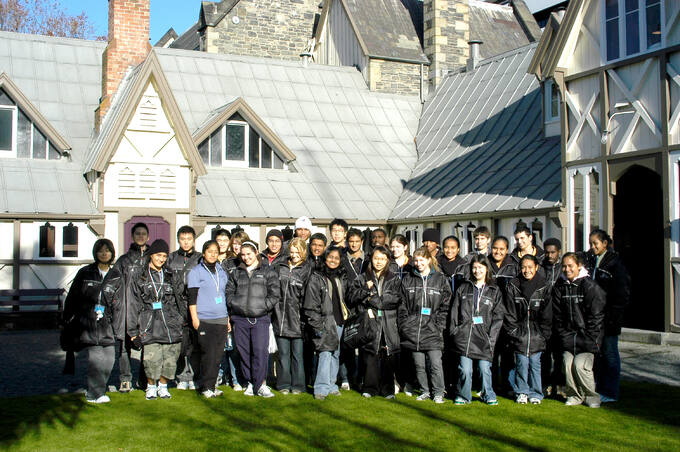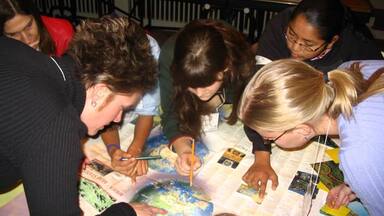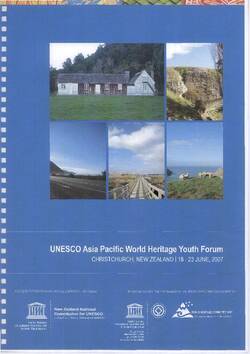Thirty students and 36 delegates throughout the Asian Pacific region met from 18 to 24 June 2007 in New Zealand to deepen their knowledge of the Maori and Pacific heritage in the framework of the 31st session of the World Heritage Committee in Christchurch, New Zealand.
Organizers
The New Zealand National Commission for UNESCO in collaboration with the New Zealand Department of Conservation, The New Zealand Historic Places Trust, CWA New Media, The New Zealand Ministry of Education, Christ's College Canterbury and LEARNZ organized the Asia Pacific World Heritage Youth Forum.
Participating Countries
International delegates were from Australia, Marshall Islands, Vanuatu, Cook Islands, Tonga, Fiji, Samoa, French Polynesia, Japan, Republic of Korea and Thailand. Participants from New Zealand included students from the UNESCO ASP schools network, The United Nations Youth Association of New Zealand and youth representatives of local indigenous tribes; Ngati Tu Wharetoa and Ngai Tahu.
Objectives
- Providing a learning outside the classroom;
- Stimulate interest in young people in World Heritage and help them to learn more about it;
- Involving in technology and ICT's.
Theoretical knowledge acquired
The delegates were introduced to the World Heritage Convention and concepts surrounding World Heritage through a series of short lectures and were also addressed by Mr. Francesco Bandarin, the Director of the World Heritage Centre, who spoke about the World Heritage Committee and particularly issues related to the 31st World Heritage Committee session. The National Commission also worked with the LEARNZ Programme (www.learnz.org.nz), an online educational that organizes virtual field trips to various significant sites around New Zealand.
A teleconference took place between the participants and educators from the LEARNZ programme Tongariro World Heritage Site Visitors Centre, New Zealand.
Practical knowledge acquired
During the forum, the youth delegates were split into five different World Heritage Youth Teams, each comprising of 6 delegates from different countries. After, accompanied by a Heritage Advisor, they visited The five New Zealand sites around the Canterbury region to investigate. Each site focused on different themes ranging from fresh water preservation, sustainable tourism, community, language and cultural diversity to education for sustainable development. The young people talked to members of the local community, experts and community leaders learning about the natural and cultural aspects of each site.
An important aspect of these site visits also included the opportunity for the youth delegates to work with ICTs and technology. Each team recorded and captured information on video as well as still cameras and the delegates were introduced to aspects of technical editing and putting together a documentary film. This culminated in a 12 minute presentation and a documentary film produced by the youth delegates.
In the end, the youth delegates delivered their "World Heritage Youth Challenge" to the delegates of the 31st session of the World Heritage Committee, at the opening ceremony on Saturday 23 June.
Contacts
- Susan Isaacs
Culture and Communications Programme Officer,
New Zealand National Commission for UNESCO
Telephone: (64-4) 473-5536; (64-4) 473-5523
Fax: (64-4) 473-5518
- Christine Robertson
Culture and Communications Programme Officer,
New Zealand National Commission for UNESCO
Christine.robertson@minedu.govt.nz



